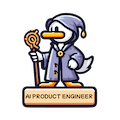E04: X AI's $6B Raise, Amazon vs Microsoft in Enterprise AI, Science Breakthroughs & More
The AI arms race is heating up as Elon Musk's XAI raises a staggering $6 billion. Plus:
- We break down the competitive positioning of the tech giants, from Microsoft's early lead with OpenAI to Amazon's open model marketplace approach.
- Will point-solution AI startups get rendered obsolete by AGI - and are VCs betting they won't?
- We also dive into how AI is already accelerating scientific breakthroughs, augmenting how enterprises work, and the societal implications as white-collar jobs start facing disruption.
Don't miss this in-depth look at the present and future of artificial intelligence.
Like what you hear? Remember to smash that subscribe button for more insights every week!
Find below👇 our:
- YouTube Episode
- Spotify Podcast
- Episode Transcript
Takeaways
- The impact of AI on enterprise strategy and technology adoption is a key consideration for major tech companies.
- The competition between cloud computing platforms like AWS and Microsoft Azure is influenced by their AI offerings and enterprise adoption.
- The ease of adoption and integration of AI models is a critical factor for enterprise decision-making.
- The development and monetization of AI models, as well as their open-source nature, are important considerations for the AI industry. AI's impact on enterprise, science, and academia is significant, with applications in generative models, text generation, and scientific article assessment.
Chapters
00:00The Rise of Grok AI: Elon Musk's $6 Billion Bet
05:29AI Impact on Enterprise Strategy
15:26Cloud Computing Competition: AWS vs. Microsoft Azure
35:23AI's Role in Accelerating Research and Innovation
46:34The Evolving Landscape of AI and Industry-Specific Solution
Episode Transcript
Rod: Welcome to another episode of the Chris Rod Max Show, where we discuss the latest developments in AI and what this means for enterprises and businesses. As usual, I'm joined by my co-hosts, Chris and Max.
Chris: Hi everyone, great to be here again.
Max: Hello everyone, it's good to be back.
XAI's $6 Billion Funding Round
Rod: In our fourth episode, we have a lot to cover including Elon Musk's AI startup Xai raising 6 billion raise. Max, as an investor, how do you interpret this?
Max: I think Elon wanted to build Xai as a direct competitor to OpenAI. He didn't believe in the closed partnership model of OpenAI but more of an open source approach. If anyone can build a competitive AI to challenge OpenAI, it's probably Elon Musk given his track record. There is space for more models in this market beyond just one dominant player. The high valuation reflects the massive potential use cases an AI like this could enable. As a VC, you always bet on opportunities like this because of the power law - you just need one big success to make the fund.
Enterprise Adoption of AI Platforms
Rod: Chris, from an enterprise buying perspective, do you see companies migrating from OpenAI or other platforms to adopt Xai's offerings?
Chris: The A16C survey showed OpenAI with over 40% market share. Among the "Magnificent 7" tech giants, Microsoft is a strong OpenAI advocate. Alphabet has its own DeepMind, Meta has LLama. Amazon invested in Anthropic while Apple seems more hardware-focused but is partnering with OpenAI and Google. The key for enterprise adoption will be integration - how easy and frictionless it is to access the AI. Microsoft has an edge here with Office suite integration. But Google Workspace is another key place. Now Apple is looking to build AI into its operating system too. OpenAI is still by far the biggest for enterprises, but there's an arms race underway.
Rod: In Europe, the main players trying to compete on a large scale are Germany's Aleph Alpha and France's Mistral. XAI aims to be serious competition - even the final interview round is conducted by Elon Musk himself. But they still need an enterprise offering beyond Twitter integration. Max, what do you advise startups on which AI platform to choose?
Max: For many organizations, Microsoft Azure is the default because they're so entrenched in the Microsoft ecosystem. Some regulated industries require a second cloud provider as backup, which could help AWS. Startups gravitate to AWS while big enterprises get captured by Microsoft. Much depends on the use case - you don't need environmental understanding for writing tweets but you do for self-driving. Ultimately, it comes down to where you deploy the models and how you reach end users. Microsoft is dominating the enterprise with Office integration but Amazon could carve out a niche with open source models for specific applications.
The Impact of AI on Science and Academia
Rod: Moving on to how AI is impacting science and academia. AI models could help generate research papers and even assess them in peer review. Chris, do you think this accelerates knowledge production in a positive way or just regurgitates existing facts without true understanding?
Chris: AI can be tremendously powerful in helping the scientific community better communicate complex ideas and research. Studies show 60% of people prefer AI-generated science writing over human versions. But we need guardrails on fact-checking and quality control. Where I'm really excited is AI helping make new scientific breakthroughs, like discovering novel molecules for drug development or beating humans at complex strategy games. AI is a tool that dramatically accelerates the speed of scientific trial-and-error and could unlock innovations we can barely imagine.
Rod: This speed is illustrated by a new AI-discovered antibiotic that can treat E. coli, which previously would have taken many years. Max, do you worry AI will replace human scientists or mainly serve as an assistant to accelerate research?
Max: I'm excited about AI's potential for scientific invention. By analyzing huge datasets, AI can surface novel patterns and relationships that humans would likely miss. Like in credit scoring, AI could identify creditworthy applicants that simplistic traditional models reject. The key is remembering AI is a tool to augment human understanding, not replace it. We need to dig into the "why" behind AI's discoveries and reason from first principles. AI empowers scientists to be vastly more efficient and creative - but can't substitute for human interpretation and meaning-making.
The Implications for Startups and the Job Market
Rod: On the business side, AI content generation could streamline or even automate many writing-heavy roles like sales and marketing. Technical writing teams may get smaller as AI handles more grunt work. Chris, how are startups and employees reacting to this?
Chris: Many startup employees, especially writers, are very worried about being automated away and are considering switching careers. Even as companies raise huge AI rounds, a lot of the offerings are narrow point solutions that could be made obsolete by a more general AI down the line. I see the endgame being these startups getting acquired for their niche datasets and domain expertise to feed into the big players' AIs. It's less about IPOing and more about contributing to the race toward AGI.
Rod: That's a good segue into our final topic - will the advent of artificial general intelligence (AGI) make all these narrow AI startups irrelevant? Max, what are your VC colleagues saying about this longer-term risk?
Max: The fact that VCs are still eagerly funding vertical AI startups suggests they don't believe AGI is imminent. It's not clear that an AGI can match human-level performance on niche expert tasks anytime soon. A lawyer doesn't just read legal briefs, but builds up judgment from years of experience. I think we'll see a barbell effect - some apps will plug into a centralized AGI while others leverage specialized AI for specific domains. Both can co-exist and deliver a lot of value in terms of cost savings and 24/7 availability. Many enterprises are already adopting AI for use cases like underwriting and customer service.
Wrap-Up
Rod: We covered a lot today! The key topics were XAI's massive funding round and the competitive dynamics in the enterprise AI platform race. We also dove into the implications of AI for scientific research and the job market. Finally, we debated the impact of AGI on the AI startup ecosystem. Thank you both for a fascinating discussion!
Chris: Thank you Rod, it was a pleasure.
Max: Thanks Rod, great chatting as always.
Rod: And thanks to our listeners! Remember to like and subscribe to the show, and leave us comments on what other topics you'd like us to cover. We'll be back again next week with more on the fast-moving world of AI.




